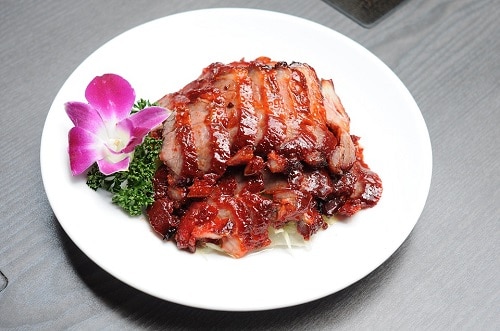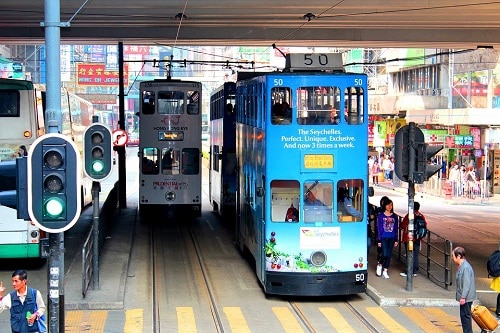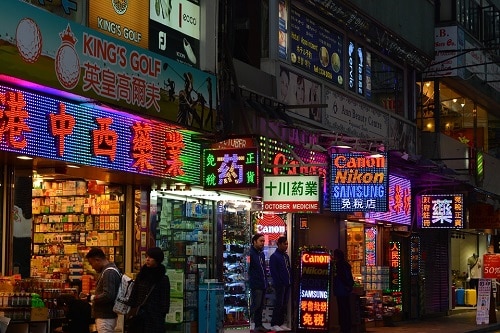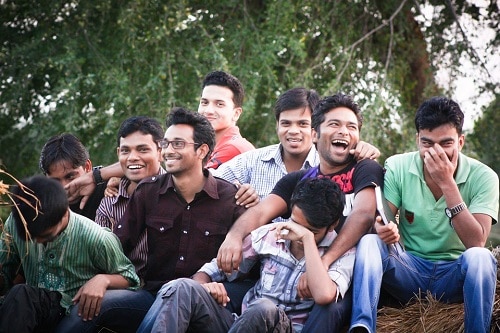Hong Kong is a meeting place of the East and West. Its landscape of skyscrapers exists alongside places of worship. Life here is highly modernized, but traditional Chinese practices are still carried out. This is evident even in the food choices, where both local dishes such as dim sum, and modern gourmet cuisine, can be found. While Hong Kong regularly witnesses large-scale construction projects using expert consultants, age-old traditions such as feng shui are also still practiced.Due to the excellent infrastructure and availability of amenities, expats will find it easy to settle down in Hong Kong. There are also the benefits of modern healthcare facilities, a high standard of education and an efficient public transport system, all of which help to ease expats through their transition period.
While a lot that goes on in Hong Kong may feel familiar to expats, many aspects will also seem foreign, and the matter of culture shock cannot be ignored. Hong Kong has its own way of doing things, many of which may surprise expats. Here’s why moving to Hong Kong will change your life, for better and worse.
Food
Hong Kong has a great selection of restaurants that range from the Michelin-starred to more affordable causal ones. It also has a small dim sum eatery that is the cheapest Michelin-starred restaurant in the world. Expats can choose from a variety of cuisines, as Hong Kong has it all.

Hong Kong also has some of its own specialties. But be warned, not everyone can stomach them. One of the city’s delicacies is snake soup, which is believed to protect against maladies. Snake meat is shredded into thin strips and added to a seafood broth with mushrooms and lemon leaves.
Then there’s also abalone, which is a marine snail that looks like a shellfish; starfish on skewers; and roasted goose, which is similar to duck. There are also the more unsavory sounding delicacies such as fried pigeon tongue and jellyfish tentacles.
Another thing expats will have to get used to is the way the Chinese share all their food. You are expected to share your dish with others at the table, and this applies to all cuisines in Hong Kong.
Staying with the matter of food; supermarkets in the city are often overpriced with not much variety. Western foods are priced higher too. Many establishments and companies still use MSG in their food products. The supermarkets can also be inconsistent with their stock, with some products being available one week, and then disappearing from the shelves the next. This may require some adjustment on the part of expats.
When in Hong Kong, be prepared to eat out a lot. Expats may also adopt the habit of photographing their every meal. The locals love to do this, irrespective of whether it is gourmet cuisine or just basic fast food. When dining with locals, remember to allow them enough time to take pictures of their meals before beginning the meal. Hong Kong culture is reverent to elders and the oldest person at the table begins their meal first, followed by the others. There is also the practice of splitting the bill equally, although sometimes the older people insist on treating everyone.
Getting around
Expats will have no trouble getting around the city due to Hong Kong’s efficient public transport system. The rail network is regular with only rare delays. But it is not permitted to eat or drink on public transport, which is probably why the trains and buses are so clean. Hong Kong also has a tram service for the northern region.
Expats will find that public transport is quite cheap and good value for money, considering the efficiency. Taxis are also available abundantly in Hong Kong. They are more expensive than public transport of course, but still affordable by western standards. It is easy to find taxis, except during the rains, when they are hard to come by.
Expats who need to travel out of Hong Kong frequently may find that flights are rather expensive. Hong Kong has such an Octopus card, which provides services such as traveling, buying food, clothes and coffee. The card can also be linked to your credit card.
Air quality
This is one area that could potentially change your life for the worse. In fact, it’s the reason why many expats are leaving the city and moving to other places such as Singapore.

Air pollution has become a serious problem in Hong Kong. The official reason for the rising air pollution levels is the factories in Guangdong area. However, Hong Kong also has the highest traffic density in the world. The city also has coal burning power plants that account for nearly half of the total pollution levels.
This problem is so critical that the news regularly features stories about lung infections, poor visibility on the roads and rising asthma statistics. It is also not safe for children to play outdoors.
Language
The locals in Hong Kong speak mostly Cantonese, English and Mandarin. This may make it a challenge for expats to pick up the local language on their own. Also, the locals tend to speak English with foreigners. Cantonese may be difficult to learn, so expats can learn Mandarin instead. Mandarin also comes in useful when networking with people from mainland China.
Raising children
Help is easily available in Hong Kong. Families can hire people who help out with looking after children, cooking and cleaning. They can also be asked to drop off and pick up children from schools. This is common in Hong Kong where most families have helpers who live with them. The rates are affordable. Expats often find their life becoming easier due to this ready availability of affordable help, and many of them consider Hong Kong to be an excellent place to raise children.

But the downside to bringing up children in Hong Kong is that since the city is so densely populated, taking kids around in a pushchair can be challenging. There are also very few parks and the open spaces that do exist are mainly used for hiking, and are not very suitable for kids. Some sports clubs located in the city have open spaces equipped with child-friendly facilities.
Social etiquette
Living in Hong Kong may cause you to change the way you greet and speak to someone. Here it is considered the norm to stand quite close to the person with whom you are having a conversation. But make sure to avoid body contact, as the locals never hug, kiss or even pat someone on the back.
Public displays of affection are a strict no-no in Hong Kong. This social norm must be especially upheld when it comes to older individuals or those in positions of authority. Doing any of the above would be considered rude. Even winking at someone may be perceived as offensive.
Expats may experience quite a bit of culture shock when they find that the usual way of friendly greeting or making small talk is not common at all in Hong Kong. Even basic things like holding a door open for someone you don’t know is not acceptable social etiquette. Communicating with locals requires thought, since expressing an opinion freely or discussing politics may cause offence.
Working in Hong Kong
It is considered perfectly normal to work late in Hong Kong. Employees do not focus on leaving work at a particular time, as they perceive the long work hours as an indication of their importance. The office space almost becomes like a second home for them, and they may see the office as a place of privacy and comfort.

Local workers may also not be strongly focused on reducing their workload and improving efficiency. They tend to prefer ‘busy work’ as it occupies their time and makes them feel significant.
Climate
Summers in Hong Kong are humid, and also a time when the pollution levels increase. Summer is also when the city becomes typhoon-prone. But Hong Kong is equipped to deal with such weather, so it is not a cause for worry. When a typhoon is approaching, the authorities put out alerts everywhere stating the level of the typhoon. Summer may also be difficult for expats as it can create a harsh contrast between the intense heat of the outdoors and the highly air-conditioned offices and buildings, making people vulnerable to developing colds in the summer.
Expat community
Hong Kong has a considerable expat population, and the expat community tends to be friendly and welcoming. However, Hong Kong is a transient place where people come and go frequently. This may be refreshing as one gets to interact with new people all the time and there are rarely any cliques. But it also means that many of the friends one makes will leave to go home at some point.
Cost of living
Hong Kong ranked second in the Mercer 2015 cost of living report. The property market tends to be overinflated, making accommodation costs high. Accommodation is likely to constitute the biggest expense from an expat’s income. Hong Kong also imports most of its produce and commodities, leading to high daily expenses. But expats are known to earn well in the city and many find that Hong Kong’s quality of life is much higher than that of their home country.

Expats can mitigate their cost of living by ensuring that they obtain a favorable expat package, which accounts for accommodation and maybe even schooling costs. For some, the package may even include a car, although this is less important since the public transport system is so easy to use, and efficient too. Potential currency fluctuation must also be kept in mind when negotiating your salary. A big advantage is the lower tax rates in Hong Kong, which are much lower than European countries.
Healthcare
Thanks to Hong Kong’s renowned healthcare system, expats may just find themselves growing happier and healthier. Life expectancy is the second highest in the world – 84 for women and 78 for men. There is a government-operated hospital system in place, managed by the island’s Health Authority.
There are no public healthcare contributions in Hong Kong. Healthcare is provided to everyone at no cost and covers Hong Kong citizens and also non-permanent residents. There are 12 private hospitals and 164 public hospitals and clinics, equipped with modern medical equipment. Hong Kong is also the manufacturer of a lot of medical equipment.
To be eligible for public healthcare, you need to have a Hong Kong Identity Card. Children under the age of 11 with resident status are also eligible, as are those that are approved by the Chief Executive of the Hospital Authority. The 12 private hospitals have partnered with the UK for international healthcare accreditation. As an expat, you may have healthcare included in your package.
Health plans vary depending on the level of coverage. It is advisable to consult private doctors for minor problems, but visit public hospitals for other concerns such as childbirth and surgical procedures. Many of the doctors practicing in Hong Kong have obtained their degrees in the US or other western countries.
With private healthcare, expats have the option of selecting the doctor they wish to see. These facilities also have shorter waiting times, as well as private or semi-private rooms. Private healthcare costs more than public healthcare, and may not be entirely covered by a private health plan. For example, private healthcare usually only covers standard private rooms, but some hospitals provide suites. Surgery costs may also vary, as they tend to cost more on outside of normal working hours, on weekends and on holidays.
Have you lived in Hong Kong? Share your experiences below, or answer the questions here to be featured in an interview.

